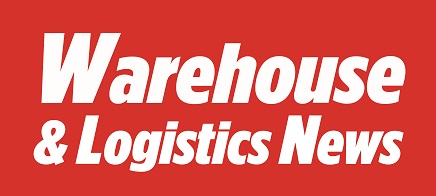Forklift accidents are costly but how many operators realize that the costs stretch beyond the immediate accident event in terms of damage repair, business disruption and fines? The sting in the tail comes when a long-term truck hire contract comes to an end and the thorny issue of truck repairs must be paid for before the machines are returned to the owner. These repairs often come as a shock and are muddied by what seems to be suspicious truck dealer practices, desperate to obtain a contract renewal. According to one forklift training company, Mentor, typical bills for repairing damage over the length of a contract add as much as another 5% on top of the total rental price.
 In fairness to truck dealers, generally if a returned truck cannot be prepared for re-hire beyond a paint job and normal service then it is the responsibility of the truck user to pay for repairs to bring the truck back to a merchantable condition for re-hire. The problem, however, is the perceived high cost of repairs, exacerbated when a dealer suspiciously offers to write off all the repair bills provided the truck user renews a long-term contract, which could be very much against the hirer’s best interests. Human nature being what it is, the truck dealer may likely have padded out the repair bills to make contract renewal more likely. Another ploy is to claim large costs for excessive usage. This ploy can be avoided at any contract start by insisting on definition of normal usage and what extra charges would be incurred for abnormal usage.
In fairness to truck dealers, generally if a returned truck cannot be prepared for re-hire beyond a paint job and normal service then it is the responsibility of the truck user to pay for repairs to bring the truck back to a merchantable condition for re-hire. The problem, however, is the perceived high cost of repairs, exacerbated when a dealer suspiciously offers to write off all the repair bills provided the truck user renews a long-term contract, which could be very much against the hirer’s best interests. Human nature being what it is, the truck dealer may likely have padded out the repair bills to make contract renewal more likely. Another ploy is to claim large costs for excessive usage. This ploy can be avoided at any contract start by insisting on definition of normal usage and what extra charges would be incurred for abnormal usage.
By far the best means to avoid these bills at contract termination time is to pay greater attention to safety practices where, alas, there seems to be far too much ignorance among supervisory staff and at board level. There is, perhaps, a feeling of resignation among truck users that daily damage is inevitable but this is almost always not so. One major UK firm routinely accepts, as normal, an annual £3million bill for repairing damaged racking, which is almost always caused by poor truck safety practices.
While the single biggest factor behind accidents is the poor behaviour of warehouse staff, sometimes encouraged by work pressures from higher up the management chain, it is difficult to achieve and sustain any level of success without good supervision, an area which is sadly lacking. According to Mentor, more than half the managers they meet have never driven a forklift or received any kind of formal training ahead of their training schemes. Moreover, as many as 90% are unaware of their legal responsibilities and the consequences of an accident that results in prosecution. Hardly surprising, then, that when accidents are investigated a common theme is the absence of a competent enforcer.
There are, of course, many causes of forklift accidents, some of which may not be the fault of a truck driver or people working closely by them, just as there are also many issues that add to costly truck repairs at the end of a 5-year hire period. These are generally of a housekeeping nature, like ensuring adequate lighting, sound floors clear of debris, potholes, poor joints, slippery liquids and the absence of seriously damaged pallets supporting loads within the racking Any good forklift safety training outfit should offer to cover these aspects as part of a holistic approach to safety.
Now it is true that good training schemes cost money but the good news is that they will be one of the best investments forklift operators could ever make, if only because of their attractive paybacks. Mentor believes that through good training nearly every operation can cuts its damage costs by 70%. It cites one UK retail chain which invested £50,000 in training and immediately reduced its stock damage cost by £130,000 per year. As for preventing staff fatalities and lifetime injury impairments, no price can be put on that.





Comments are closed.